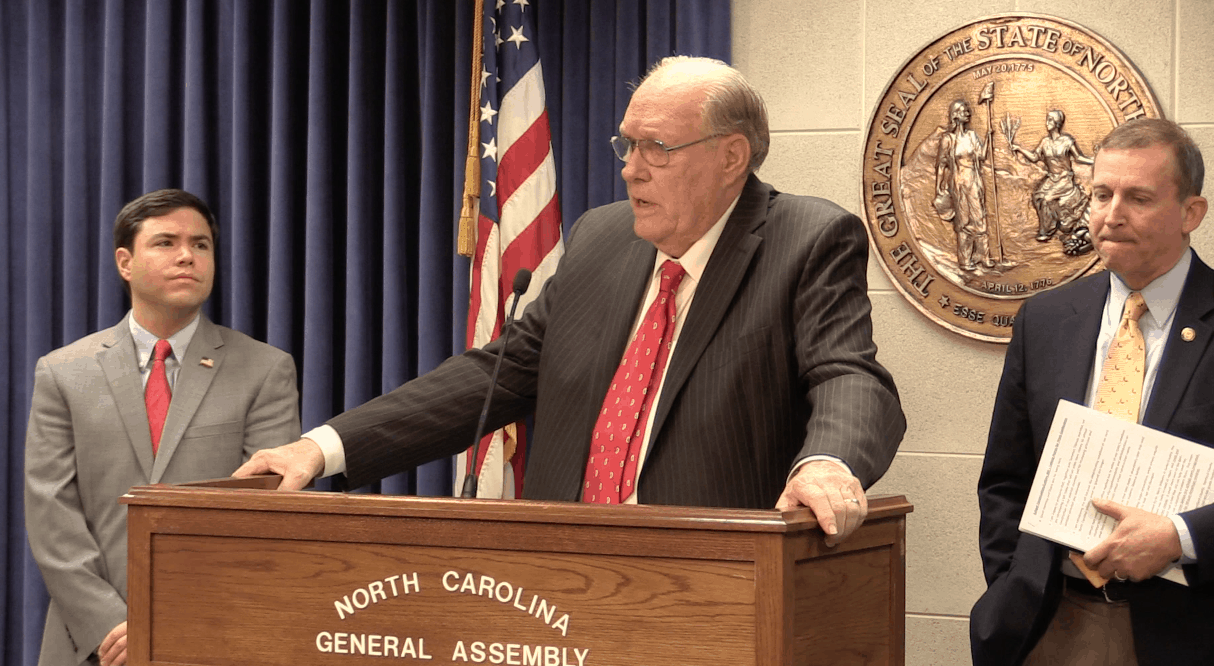Senate leaders rolled out a funding proposal Thursday that would increase the state allotment for administrator pay and address infrastructure needs of low-wealth schools.
The legislation would give the equivalent of a 7 percent increase in the average principal salary to each school district. The superintendent of that district would be responsible for distributing those raises to the district’s principals.
Sen. Harry Brown, R-Jones, Sen. Jerry Tillman, R-Moore, and Sen. Ralph Hise, R-Madison, stood with State Superintendent Mark Johnson in a press conference explaining the legislation (video below), which would use education lottery funds for construction and higher principal and assistant principal salaries.
All principals would also receive $2,600 bonuses. In low-wealth counties, the bill would create a principal bonus program that gives principals $5,000 bonuses, $1,000 at a time, depending on five criteria, the first four of which are at the discretion of the district superintendent:
- Strong leadership
- Improvement in learning environment
- Positive community perception and high morale within the school
- Improvement in physical environment
- Exceeding expected academic growth
“We’re trying to get off of 50th in the nation,” Tillman said. “You can’t have a good school without a good principal so we’ve got to get moving there.”
The legislation would give assistant principals 13 percent more than the highest-paid teacher salary.
“That will keep them always above the teachers,” Tillman said. “So you don’t have teachers making more than assistant principals, and we’ve got that in several places. You’ve got people in charge of faculty, and you have faculty making more money.”
The bill is separate from the Senate’s budget proposal which is expected soon. Governor Cooper introduced his proposed budget last week.
The legislation also creates a “Needs-Based Public School Capital Fund,” which would give grants to 80 counties that rank in the bottom two out of three levels of the state’s system that measures economic distress. The funds would be provided for school construction and repair.
“I’m introducing this bill because the deteriorating condition of our rural North Carolina schools can not be ignored any longer,” Brown said.
The measure would also change the lottery’s advertising budget from 1 to 2 percent of lottery funds.
Recommended reading




